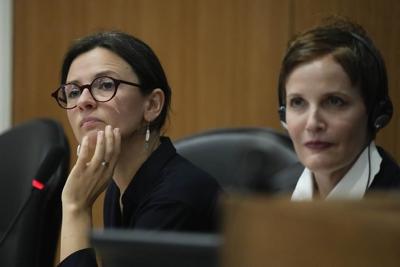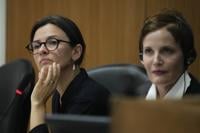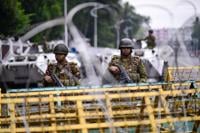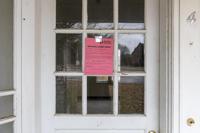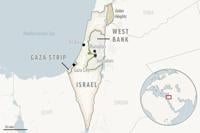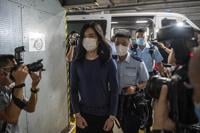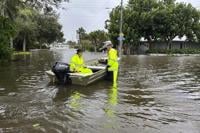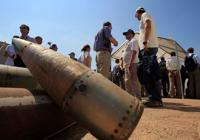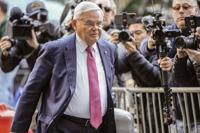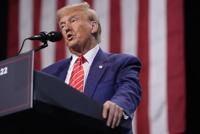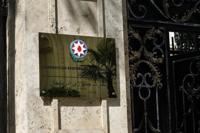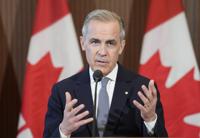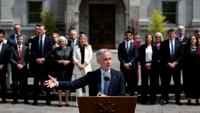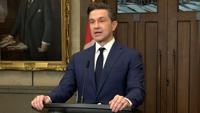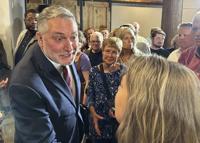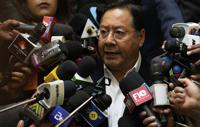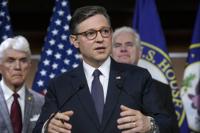ROME (AP) — The Vatican secretary of state on Monday strongly defended World War II-era Pope Pius XII as a friend of the Jews as he opened an historic conference on newly opened archives that featured even Holy See historians acknowledging that anti-Jewish prejudice informed Pius’ silence in the face of the Holocaust.
Cardinal Pietro Parolin’s defensive remarks were delivered before the conference observed a minute of silence to honor victims of the . Standing alongside the chief rabbi of Rome, Parolin expressed solidarity with the Israeli victims and “to those who are missing and kidnapped and now in grave danger.”
He said the Vatican was with grave concern, and noted that many Palestinians in Gaza were also losing their lives.
The conference at the Pontifical Gregorian University was remarkable because of its unprecedented high-level, Catholic-Jewish organizers and sponsors: The Holy See, Israel’s Yad Vashem Holocaust research institute, the U.S. Holocaust Memorial Museum, the U.S. and Israeli embassies to the Holy See and Italy’s Jewish community.
The focus was on the research that has emerged in the three years since the Vatican, on orders from , opened the Pius pontificate archives ahead of schedule to respond to historians’ requests for access to the Holy See's documentation to better understand Pius' wartime legacy.
Historians have long been divided about Pius’ record, with supporters insisting he used quiet diplomacy to save Jewish lives and critics saying he remained silent as the Holocaust raged. The debate over his legacy has stalled his beatification campaign.
Parolin toed the Vatican’s longstanding institutional defense of the wartime pope, citing previously known interventions by the Vatican secretariat of state in 1916 and 1919 to American Jews that referred to the Jewish people as “our brethren.”
“Thanks to the recent opening of the archives, it has become more evident that Pope Pius XII followed both the path of diplomacy and that of undercover resistance,” Parolin said. “This strategic decision wasn’t an apathetic inaction but one that was extremely risky for everyone involved.”
After he left, however, other historians took the floor and offered a far different assessment of both Pius and the people in the Vatican who were advising him. They cited the new documents as helpful to understanding Pius’ fears, anti-Jewish prejudices and the Vatican's tradition of diplomatic neutrality that informed Pius' decisions to repeatedly keep silent even as
Giovanni Coco, a researcher in the Vatican Apostolic Archives who were being sent to death camps in 1942, noted that Pius only spoke of the “extermination” of Jews once in public, in 1943. The word was never again uttered in public by a pontiff until St. John Paul II visited Auschwitz in 1979.
Even after the war, Coco said, “in the Roman Curia the anti-Jewish prejudice was diffuse,” and even turned into flat-out antisemitism in the case of Pius’ top adviser on Jewish affairs, Monsignor Angelo Dell’Acqua.
David Kertzer, a Brown University anthropologist, cited several cases in which Dell’Acqua advised Pius against any public denunciation of the slaughter of European Jews or any official protest with German authorities about the 1943 roundup of Italy’s Jews, including “non-Aryan Catholics,” during the German occupation.
Kertzer said while Pius “personally deplored” the German efforts to murder Italy’s Jews, was to “maintain good relations with the occupying forces.”
Rabbi Riccardo Di Segni, the chief rabbi of Rome, said it was one thing to offer a theological justification for the Catholic Church’s anti-Jewish prejudice that informed Pius actions and inactions and quite another to justify it morally.
Sitting next to Parolin, Di Segni rejected as offensive to Jews any judgements that are “absolutist and apologetic at all costs.”

